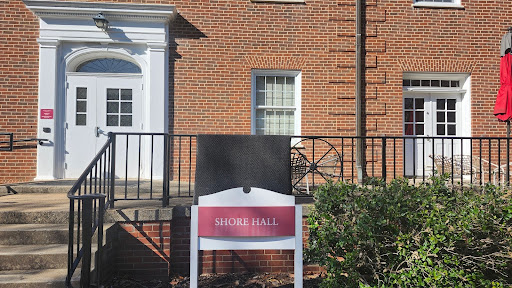Witness in Dallas police officer trial found dead
On Sep. 9, 2018, former police officer Amber Guyger shot her African American neighbor Botham Jean in his own apartment, thinking it was her own. She was convicted with murder on Sep. 30, 2018, and given 10 years in prison. On Friday, Oct. 4, Joshua Brown, a key witness in the trial, was found dead.
Guyger was returning home to her apartment complex in Dallas, Texas, after a tiring double shift at her job and parked on the fourth floor instead of the third floor, where her apartment was located.
Distracted by texts and phone calls from her partner, Guyger approached the apartment that would have been hers on the third floor and tried to swipe her electronic key. However, the door automatically pushed open and she entered the apartment.
The apartment actually belonged to Botham Jean, an African American businessman who posed no threat at the time Guyger entered the apartment. He was eating a bowl of ice cream in his living room in the dark when he heard Guyger enter the apartment, according to the Washington Post.
As he approached Guyger, she saw only the dark shadow of a man and panicked, pulled out her service weapon and shot him in the chest.
After she turned the lights on and realized that she was in the wrong apartment, Guyger dialed 911.
“I thought it was my apartment,” she repeated on the call.
However, there were many red flags in the scenario that raised suspicion during the trial.
Firstly, Jean placed a bright red doormat at the entrance of his apartment so his friends could differentiate his place from others.
Next, some argue that Guyger’s response after the shooting, as a trained police officer, was not adequate.
“Once she realized that she shot and almost killed someone, taking some sort of immediate action to save his life should have been first priority,” said Helen O’Connell, a first-year who is interested in majoring in pre-law.
This reflects how Guyger did not respond reasonably after the shooting. Although she was a trained police officer, Guyger administered no first-aid to Jean and failed to contact the police department in time.
“Had (Guyger) done any one of those things, Mr. Jean would probably be alive today,” said Assistant District Attorney Jason Hermus to the National Public Radio.
On Sept. 9, 2018, Guyger was arrested and charged with manslaughter. However, she posted a $300,000 bond and was released on probation. Her police contract was eventually terminated.
Although prosecutors asked for a sentence of 28 years, Guyger was convicted of murder and sentenced to 10 years in prison on Sep. 30, 2019, after an hour and a half of deliberation by the jury. This was significantly smaller than the maximum possible sentence of 99 years.
However, forgiveness was demonstrated in the courtroom as well. Botham Jean’s brother, Brandt Jean, exchanged a hug with Guyger after the verdict was announced.
“I want the best for you,” said Jean.
The judge also exchanged a Bible and a hug with Guyger.
“I do think it’s important that she was convicted because police officers are so seldom convicted when they shoot innocent, unarmed people,” said Maria Rosales, a professor of political science at Guilford College.
“I’m not sure the length of the sentence would actually make society better,” Rosales added.
On Aug. 4, Joshua Brown was found dead with multiple gunshot wounds only four miles away from Jean’s former apartment complex. Brown was a key witness in the trial who had lived in the same complex as Jean and Guyger, and was present when the murder took place.
He testified that he did not hear Guyger saying “put your hands up,” which Guyger testified that she did say.
While some people speculate that Brown’s death could be related to Guyger’s case or the Dallas police, the city’s mayor urged people to refrain from jumping to conclusions before the police investigate thoroughly.
One of the reasons that Guyger’s case raised such a large amount of debate is the ongoing racial tensions within the United States. This ranges from shootings of innocent African American civilians by white police officers to the inconsistency seen in sentences for people of color compared to those for Caucasians.
“The context of our current events; that’s why this case got so much attention,” said Yaw Yeboah, a first-year interested in a political science minor.
Whether this case stands out for you in terms of the racial consequences or unusual circumstances, one thing is for sure–one innocent civilian was murdered and another was found dead. In the approaching future, the ambiguity surrounding this case will be resolved and the families and communities impacted by these deaths will learn to heal.
Editor’s note: This story originally was published in Volume 106, Issue 3 of The Guilfordian on Oct. 18, 2019.






Trudy A Cooper • Oct 30, 2019 at 12:11 am
God article. But the date of the shooting is wrong. Joshua Brown was shot in October (ten days after the Guyger trial), not August.